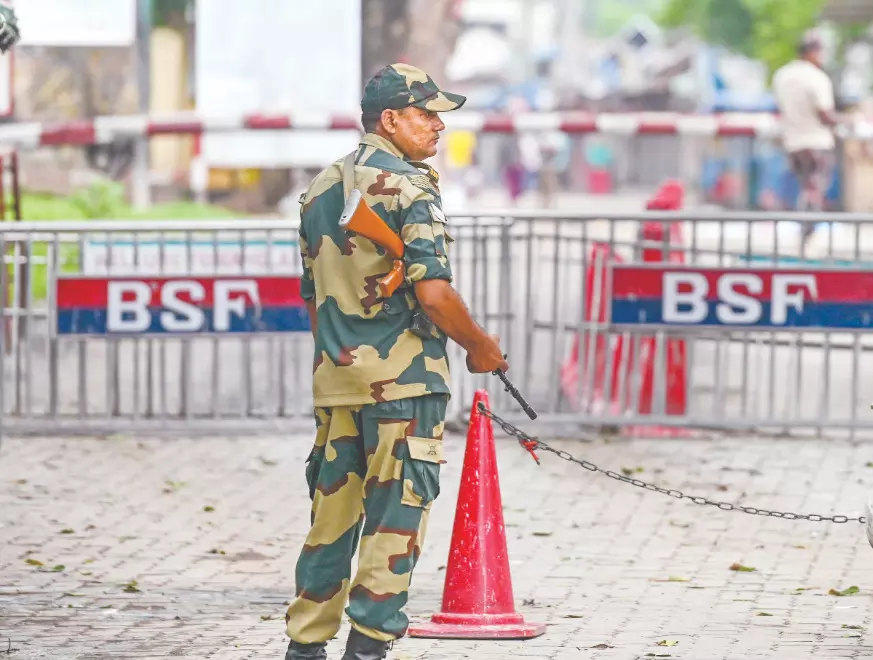‘Focus on own minorities’: India slams B’desh over Bengal violence comment

New Delhi: Tensions between India and Bangladesh reached a boiling point in the last two days after the two nations exchanged sharp remarks over communal violence in West Bengal and allegations of minority persecution in Bangladesh. India dismissed comments from Bangladeshi officials regarding violence in West Bengal on Friday, urging Dhaka to concentrate on safeguarding the rights of its minority populations rather than engaging in “virtue signalling”.
The public spat marks a rare rift in bilateral ties that have generally focused on regional cooperation. The controversy centres on recent clashes in West Bengal’s Murshidabad district, where communal violence reportedly led to casualties and significant property damage, primarily affecting Muslim communities. While Indian authorities have yet to release official figures, local media reports suggest fatalities and numerous injuries.
The exchange of words began when Shafiqul Alam, press secretary to Bangladesh’s interim government, posted a message on social media. Alam strongly denied any connection between Bangladesh and the violence in Murshidabad, condemning the attacks on Muslims that resulted in loss of life and property. He urged the government of India, as well as the authorities in West Bengal, to take all necessary steps to protect the minority Muslim population.
Ministry of External Affairs (MEA) quickly responded, dismissing the Bangladeshi comments as “baseless” and “disingenuous”. In a forceful rebuttal, MEA spokesperson Randhir Jaiswal accused Dhaka of deflecting attention from its own human rights issues, particularly concerning religious minorities. He said, “We reject the remarks made by the Bangladesh side… This is a barely disguised attempt to draw a parallel with India’s concerns over the ongoing persecution of minorities in Bangladesh, where perpetrators continue to roam free.”
The MEA also called on Bangladesh to focus on “protecting the rights of its own minorities” instead of engaging in “virtue signalling”. While the government did not elaborate on specific allegations, minority communities in Bangladesh, including Hindus, Buddhists, and indigenous groups, have long raised concerns about land rights and safety.
The confrontation comes at a sensitive time for both nations. In India, the ruling Bharatiya Janata Party (BJP) has frequently emphasised the protection of minorities in neighbouring countries. On the other hand, Bangladesh’s interim government is under scrutiny as it prepares for elections later this year, with rising domestic criticism over its handling of religious tensions.
India-Bangladesh relations, which have generally strengthened in recent years due to trade and connectivity projects, have faced occasional strains over issues related to religious minorities. In 2023, India expressed concern over attacks on Hindu temples in Bangladesh, while Dhaka has previously criticised India’s Citizenship Amendment Act (CAA) for being discriminatory toward Muslims.
The diplomatic fallout from the latest exchange could have broader regional implications. Both countries play pivotal roles in regional organisations like SAARC and BIMSTEC, and Bangladesh is a crucial partner in India’s “Neighbourhood First” policy. However, the public accusations could inflame nationalist sentiments on both sides, complicating regional diplomacy.
Neither government has indicated plans to de-escalate the situation. Indian officials have emphasised that law enforcement in West Bengal is addressing the communal violence in Murshidabad, while Bangladesh’s interim government has yet to respond to India’s latest remarks.



